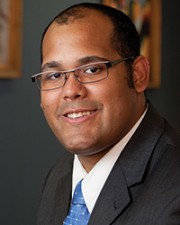Preserving assets through non-liquidating court-supervised proceedings - by John Dorsey

Ferrucci Russo P.C.
Court-supervised receivership and special mastership proceedings are designed to seek the Court’s intervention to exercise its powers over assets in order to preserve and protect the value of those assets for the benefit of stakeholders. Traditionally, those stakeholders have primarily included secured and unsecured creditors. However, if the value of an asset can be preserved at an early stage then equity holders and in certain instances, public interests that represent key stakeholder interests can also benefit from Court-supervised proceedings.
While Court-supervised proceedings are often driven by insolvency issues, stakeholders and representative public interests are exploring the advantages and flexibility of the Court-supervised process to prevent the wasting or further diminution of value of assets before they reach the point of insolvency. These types of proceedings are commonly referred to as non-liquidation proceedings.
In Rhode Island, these types of matters are typically assigned to the Rhode Island Superior Court Business Calendars. The Business Calendars were established as specialized court calendars designed in part to expedite litigation and preserve economic investment in the State of Rhode Island.
In order to safe-guard assets, the law allows for the Superior Court to appoint a fiduciary, which can be in the form of a receiver, or a special master, to take control of the affairs of the of the assets in dispute and to preserve the value of the assets during the pendency of the Court proceedings.
From an equity stakeholder’s standpoint, non-liquidation proceedings have been frequently utilized in addressing deadlock between ownership and litigation disputes. One benefit to the litigants is to have a Court-appointed fiduciary safe-guard the assets while the parties focus their efforts towards either resolving the dispute or advancing the litigation in a time efficient manner, without the pressure of simultaneously maintaining an asset.
One scenario where this strategy has arisen is in respect to condominium associations. In dealing with condominium associations, there is usually a well-defined set of issues that separate the members of the association. During litigation, those issues can ultimately jeopardize the otherwise normal day-to-day operations of the condominium association. In turn, a Court-appointed fiduciary can be beneficial to all parties.
In the condominium association example, the Court-appointed fiduciary’s role can be limited to maintaining the operations of the association and preserving the status quo while the parties focus efforts on resolving, or litigating the issues that separate them. During this process, the benefit for stakeholders is that the value of the association is preserved by keeping status quo day-to-day operations during litigation.
Another context in which non-liquidating Court-appointments can be a viable strategy arises from the standpoint of a public interest. Municipalities have explored several avenues of Court-supervised receivership and special mastership proceedings to address issues primarily involving properties with blight, public safety or environmental issues. In these situations, the municipality requests that the Court appoint a fiduciary to rectify the safety and environmental issues.
One way in which these issues can be rectified is by the Court-appointee working directly with the ownership interest to establish Court-approved protocols and timeframes to allow the owner to rectify the issues. Alternatively, in certain circumstances (i.e. demolition of public safety or environmental hazard) the municipality can ask that the Court-appointee be authorized to undertake this work. This is an effective strategy when there are impediments that would prevent these issues from being remedied outside of a Court-supervised process. The benefit for the municipality is that the immediate issues presented by the property are rectified and often the resolution of these issues can create economic development opportunities.
The legal framework for these types of proceedings can be statutorily based in some circumstances but are more commonly established by the Court’s inherent equitable powers. The Rhode Island receivership statutes represent “merely a codification of equitable principles” that the Court uses to fashion equitable rules of law. In turn, it has been well-established that the Superior Court’s “inherent power to appoint a receiver is broad”. In the context of a condominium association, this approach is also supported by R.I.G.L. § 34-36.1-1.08 which expressly authorizes the Court to utilize both receivership and equitable principles where the Rhode Island Condominium Act is silent.
In the types of litigation discussed above, the appointment of a non-liquidating receiver or special master can be beneficial when it will help to protect the interest of the stakeholders by preserving the value of assets from being dissipated.
1. Patel v. Shivai Nehal Realty, LLC, 212 R.I. Super. LEXIS 163 (R.I. Super. October 26, 2012).
2. Peck v. Jonathan Michael Builders, Inc., 2006 WL 3059981, *6 (R.I.Super. 2006).
John Dorsey Jr., Esq., is an attorney with Ferrucci Russo P.C., Providence, R.I.
The New England Real Estate Journal presents the First Annual Project of the Year Award! Vote today!








.png)